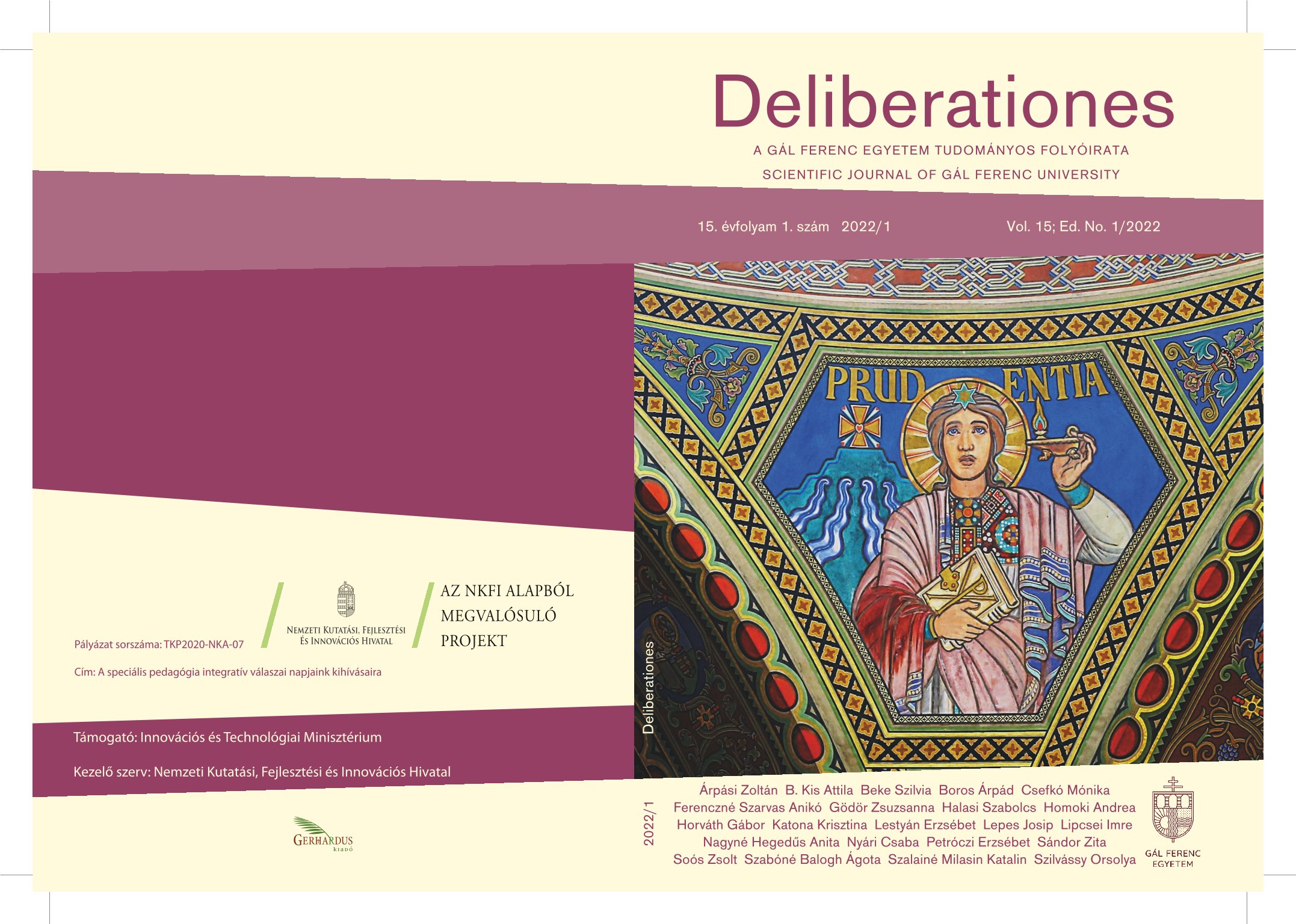Abstract
Health as a concept has remained almost unchanged since its formulation by the WHO in 1948, despite the fact that its static nature has received considerable criticism over the past few decades. The dimensions covered by this definition are continuously monitored by numerous researches, as well as by the WHO itself, both by country, by continent and globally. Due to this, as a result of the past decades, we have had to face many changes.
In addition to the concept, however, countless models have been created, the common feature of which is that they all examine the factors affecting health from different aspects. After all, in connection with the concept of health, we must not forget its economic and social embeddedness. What is considered healthy or sick also depends on the judgement of a given society.
In this spirit, it is worth distinguishing between the concepts of objective and subjective health, in which the former can basically be measured, while the latter reflects the individual's current state.
The aim of the author is to present a comprehensive survey of the interpretation of the concept of health with the help of these models, which fundamentally defines the concept of health promotion and its activities. The paper also touches on the pedagogy of the health promotion process in addition to the technological changes of recent years and the need for interactivity, too.
Health promotion is never the task of a single sector, but it always requires inter- and multidisciplinary cooperation, which the author also tries to highlight by presenting the "good practices" already implemented.
The overview of the topic can also provide an opportunity to make the pedagogical practice, which is still one-way in many cases, more open, and the application of new options could also become more accepted both by teachers, health professionals and those experts who have a fundamental impact on the health awareness of our children in their daily work.
References
Ádány , R. (2011). Megelőző orvostan és népegészségtan. Budapest: Medicina Könyvkiadó.
Állami Egészségügyi Ellátó Központ. (dátum nélk.). Letöltés dátuma: 2021. október 30., forrás: Egészségtudományi Fogalomtár: https://fogalomtar.aeek.hu/index.php/Egészségtudatos_magatartás
Beke, S., & Tömő, Z. (2021). Az egészség, mint fogalom és érték alakulása a járványügyi időszak tükrében. Deliberationes, 5-13.
Bíróné Nagy, E. (2004). A sportpedagógia társadalom-és természettudományos alapjai. In E. Bíróné Nagy, Sportpedagógia (old.: 65-110). Budapest-Pécs: Dialóg Campus.
Cselik, B. (2017.). Egészségfejlesztő program hatása általános iskolások egészségmagatartására. Pécs.
Csizmadia, P. (2018). Kísérlet az egészség fogalmának újradefiniálására. Egészségfejlesztés, LIX.(1), 45-51.
Dahlgren, G., & Whitehead, M. (1991). Policies and Strategies to Promote Social Equity in Health. Stockholm: Institute for Futures Studies.
Eörsi, D., Árva, D., Herczeg, V., & Terebessy, A. (2020). Komplex iskolai egészségfejlesztő program a COM-B modell tükrében. Egészségfejlesztés, LXI.(1), 36-47.
Járomi, É., & Vitrai, J. (2017). Egészségstílusokhoz illesztett, viselkedésváltozást célzó beavatkozások tervezése. Egészségfejlesztés, 2.(LVII.), 34-50.
Kubányi, J., & Szűcs, Z. (2020). Változások a karanténidőszakban a GYERE programban résztvevő iskolás gyermekek életében. In E. Antal, & R. Pilling, A magyar lakosság életmódja a járványhelyzet idején: táplálkozás, testmozgás és lélek (old.: 106-108.). Budapest: TÉT Platform Egyesület.
McGinnis, J., Williams-Russo, P., & Knickman, J. (2002). The Case For More Active Policy Attention To Health Promotion. Health Affairs, XXI.(2.), 78-93.
Moravcsik-Kornyiczki, Á., & R. Fedor, A. (2021). Az egészség komplex megközelítése, mint az egészség-szociológiai vizsgálatok elméleti kerete. Acta Medicinae et Sociologica, XII.(32), 24-49.
OECD. (2019). Magyarország · Egészségügyi országprofil 2019. Letöltés dátuma: 2021. november 3., forrás: https://ec.europa.eu/health/sites/default/files/state/docs/2019_chp_hu_hungary.pdf
Születéskor várható átlagos élettartam. (2019). Letöltés dátuma: 2021. október 30., forrás: Központi Statisztikai Hivatal: https://www.ksh.hu/stadat_files/nep/hu/nep0061.html
Születéskor várható átlagos élettartan-nők. (2019). Letöltés dátuma: 2021. október 30., forrás: Központi Statisztikai Hivatal: https://www.ksh.hu/stadat_files/nep/hu/nep0062.html
Túry, F. (2003). A magatartásorvoslás helye a magatartástudományok keretében. Magyar Tudomány, XLVIII(11), 1373-1381.
Uzzoli, A. (2016). Health inequalities regarding territorial differences in Hungary by discussing life expectancy. Regional Statictics, VI(1.), 139-163.
Vitrai, J. (2011). Az egészség és az egészség-egyenlőtlenségek egyéni és közösségi szintű befolyásoló tényezői. Pécsi Tudományegyetem Doktori Iskola. Pécs: Pécsi Tudományegyetem.
Vitrai, J., & Mihalicza, P. (2006). Egészségi állapot. In T. Kolos, I. Tóth, & G. Vukovich, Társadalmi riport 2006. Budapest: TÁRKI.
Waddell, G. (2006). Preventing incapacity in people with musculosceletal disorders. British Medical Bulletin, 55-69.
